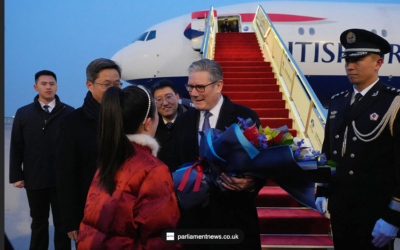Every year, hundreds of thousands of international students choose the United States as their preferred destination for higher education. They arrive on F1 visas, bringing with them more than just academic ambition. These students contribute billions of dollars to the U.S. economy, support thousands of jobs, and inject cultural and intellectual diversity into American campuses. So, when talk arises about halting F1 visa appointments, it sends tremors far beyond the university gates.
The recent speculation, or in some instances, actions, toward pausing F1 visa appointments has ignited a critical conversation. What would happen if the United States were to shut the door, even temporarily, on incoming international students? The consequences are not abstract. They’re tangible, immediate, and potentially long-lasting.
To start, let’s look at the universities themselves. Many U.S. colleges, particularly public institutions, have become increasingly reliant on international student tuition to balance their budgets. Unlike domestic students who benefit from in-state tuition discounts and federal financial aid, international students typically pay the full sticker price.
According to data from the National Association of Foreign Student Advisers (NAFSA), international students contributed over $40 billion to the U.S. economy in the 2022–2023 academic year alone. That’s not a figure to be overlooked. At some institutions, international students represent up to 25% of total tuition revenue. Their contributions fund faculty salaries, maintain campus infrastructure, and allow universities to offer more financial aid to U.S. students.
If F1 visa appointments are halted, even temporarily, it jeopardizes this financial lifeline. Universities may face immediate shortfalls, potentially leading to cuts in programs, staff layoffs, and tuition hikes for domestic students. It becomes a domino effect, all set off by a single visa policy decision.
But the impact doesn’t stop at the university level. International students are deeply integrated into the communities where they study. They rent apartments, shop locally, dine at restaurants, use public transportation, and purchase insurance. A single international student can inject more than $30,000 annually into a local economy. Multiply that by the hundreds or thousands of students in a college town, and the economic stakes become clearer.
Cities like Boston, New York, and Los Angeles see significant spending from these students, but even smaller towns like Bloomington, Indiana, or Gainesville, Florida, benefit enormously. When F1 visa appointments are paused, these local economies, already strained by inflation and post-pandemic recovery, stand to lose millions.

The ripple effect also extends into employment. The presence of international students supports nearly 378,000 jobs nationwide. These aren’t just faculty roles at universities. They include administrative positions, housing staff, restaurant workers, retail employees, and even jobs in healthcare and banking.
For example, an apartment complex near a university may depend on student renters for 80% of its occupancy. A local café might hire extra staff during the academic year to manage the influx of student customers. A reduction in international student enrollment can force these businesses to cut hours, reduce payroll, or close altogether.
Beyond economics, there’s a knowledge and innovation angle to consider. International students are a major force in U.S. research, especially in science, technology, engineering, and math (STEM) fields. In many graduate programs, they make up the majority of research assistants and doctoral candidates. Their contributions drive groundbreaking discoveries, support federally funded projects, and help keep the U.S. at the forefront of global innovation.
A pause in F1 visas delays or denies these bright minds the opportunity to join American research institutions. That doesn’t just affect academia, it impacts industries that depend on university research for innovation, such as pharmaceuticals, tech, and energy.
There’s also a less tangible but equally important consequence: the erosion of U.S. soft power. Students who study in America often return to their home countries with a lasting appreciation for American culture, values, and systems. They become ambassadors of goodwill, helping to strengthen diplomatic and economic ties with their native countries.
When these students are shut out, that bridge of understanding begins to crumble. Other countries, Canada, the UK, Australia, and Germany, are already capitalizing on this opportunity, making visa processes easier and more welcoming. If the U.S. is seen as hostile or unpredictable, it risks losing its edge in attracting top global talent.
Even if the halt is temporary, the damage can be long-lasting. The college application process begins months in advance, and any uncertainty around visa availability can lead students to choose other destinations. Once that decision is made, it’s often irreversible for that academic year.
Moreover, once trust is broken, rebuilding it is difficult. Parents and students alike look for stability, and if the U.S. system appears unstable or politicized, they will simply look elsewhere. This could result in a sustained decline in international enrollment, further eroding the financial and intellectual capital of American higher education.
Halting F1 visa appointments may seem like a procedural or administrative issue, but it has far-reaching economic and societal consequences. From university budgets and job creation to research output and international diplomacy, the stakes are incredibly high.
The U.S. has long been a magnet for the world’s brightest students, and that has paid off in innovation, prosperity, and global influence. Turning off that tap, even briefly, could cost more than we’re prepared to lose. It’s not just about visas it’s about values, leadership, and the future of America’s role in the world.
Maintaining a steady, transparent, and welcoming visa policy isn’t just good ethics it’s smart economics.
Sure! Here’s a strong, concise Call to Action (CTA) tailored specifically for the article on the economic impact of halting F1 visa appointments:
📢 Call to Action
The future of international education in the U.S. is at a crossroads — and every voice counts.
✅ Share this article with educators, policymakers, and fellow students to spark meaningful dialogue.
✅ Leave a comment below to share your perspective or personal experience.
✅ Support global education by staying informed and advocating for fair, consistent F1 visa policies.
Together, we can ensure that opportunity, innovation, and global collaboration continue to thrive in America’s classrooms and communities.


